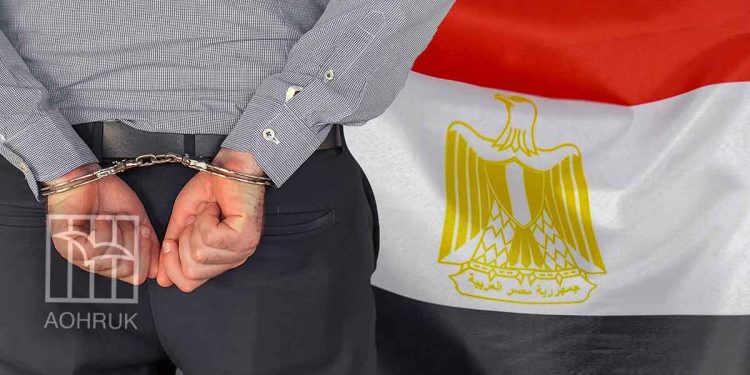Egypt’s Supreme State Security Prosecution has ordered the detention of eight citizens — including young lawyer Saif Mamdouh Ahmed — for 15 days pending investigation, following their participation in a solidarity event for Gaza held on May 4.
Saif Mamdouh is considered one of the most prominent detainees in this case. He was arrested more than a month ago without being brought before investigators or having his place of detention disclosed — a flagrant violation of the right to liberty and physical safety, as well as the basic safeguards enshrined in the Egyptian constitution and international law, especially the right to know the location of detention and to communicate with a lawyer and family members.
The detainees are charged under Case No. 3862 of 2025 (State Security), facing the same recycled accusations often used in similar cases, including “joining a terrorist group” and “spreading false news and information likely to harm public security.” These charges clearly aim to criminalize peaceful activities, in direct violation of the rights to freedom of opinion and expression, guaranteed under Egypt’s constitution and the International Covenant on Civil and Political Rights.
In addition to Saif Mamdouh Ahmed, the case involves seven young men, including university students, who were arrested for raising slogans in solidarity with the Palestinian people — a reflection of the increasing targeting of activists and ordinary citizens simply for expressing moral stances on regional and humanitarian issues.
In recent months, Egypt has seen a notable uptick in politically motivated arrests tied to solidarity or humanitarian actions. The number of detainees in such cases has reached 186 individuals across 16 different cases currently being reviewed by State Security prosecutors. Charges range from unauthorized protest and raising banners, to participation in humanitarian support efforts.
The recent wave of arrests — including the case of Saif Mamdouh — marks a significant development in the pattern of repression. Security crackdowns are no longer limited to those directly involved in activism, but now extend to their social and professional circles. This indicates an attempt to intimidate wider segments of society and further restrict civic space.
Strikingly, professional associations — particularly the Bar Association — have remained silent on the case of their own member. This raises serious questions about the role of such organizations in defending their members and protecting their independence in the face of mounting security interference that infringes upon fundamental rights.
Currently, at least 150 individuals remain in pretrial detention across 12 different cases, facing charges including “joining a terrorist group,” “spreading false news,” and “illegal assembly.” Among them are three minors under the age of 18 — a clear violation of the state’s obligation to protect children and a breach of the UN Convention on the Rights of the Child, which Egypt has ratified.
These security measures reflect a recurring pattern of restrictions on fundamental freedoms — foremost among them freedom of expression, peaceful assembly, and protest — and raise legitimate concerns about the shrinking of civic space in Egypt. Solidarity and humanitarian action are now being treated as crimes, with individuals punished through the harshest security tools available.

























